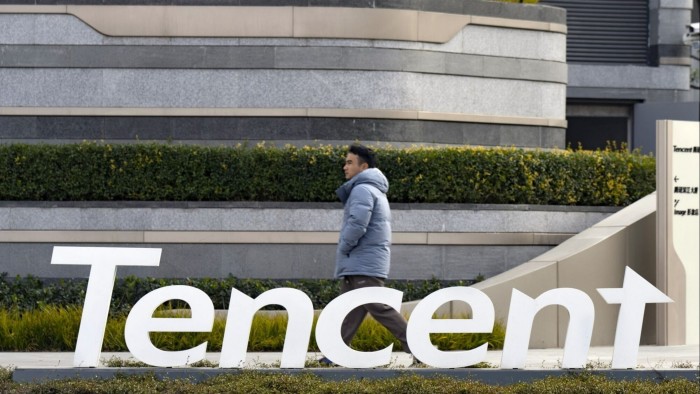Unlock the Editor’s Digest for free
Roula Khalaf, Editor of the FT, selects her favourite stories in this weekly newsletter.
The inclusion of Chinese companies on US blacklists is hardly new. But in recent years, the growing dominance of Chinese firms in sectors such as electric vehicle batteries and shipbuilding has attracted both significant foreign investment and attention that makes them particularly susceptible to US regulatory actions.
On Tuesday, the US Defense Department added CATL, the world’s largest EV battery maker, and Tencent, the largest game maker, to a blacklist for alleged links to the Chinese military. Shares in both dropped in response — in the case of Tencent more than 7 per cent in Hong Kong, highlighting investors’ sensitivity to rising geopolitical tensions and regulatory risks. But the sell-off should be shortlived.
Other companies on the Chinese military blacklist include chipmaker Changxin Memory Technologies and China’s largest shipping company Cosco Shipping Holdings, plus two local shipbuilders. Tencent and CATL have denied military ties and called the designation a mistake.
Investors’ concerns about the potential impact of the latest blacklisting are understandable given the global market share and investor base of the affected companies. Chinese shipbuilders, for example, accounted for nearly three-quarters of all global new orders last year.
But not all blacklists are equal. There are certain types of blacklists that can cause much financial damage to affected companies. For example, the entity list maintained by the Department of Commerce — which restricts US exports of goods and technology to listed entities without a licence — is one. An investment ban on certain Chinese companies is another, as this gives US investors a deadline to divest, resulting in a lasting sell-off.
But being placed on the Chinese military blacklist is a designation that carries no specific penalties and does not involve immediate bans for companies. For Tencent, which gets most of its revenue outside of the US, the financial impact should be limited. While CATL supplies US companies including Tesla, analysts estimate that US revenue constitutes less than a tenth of the group total for both companies.
There is also a precedent for challenging such designations. Chinese smartphone maker Xiaomi successfully contested its inclusion on the US Department of Defense’s military blacklist in 2021 through a lawsuit. Within months it reached an agreement with the US government to be removed. Shares of Xiaomi rose about 30 per cent in the months following.
Tuesday’s market reaction serves as a reminder of the inherent risks posed by escalating geopolitical rivalry between China and the US. But the material impact on the affected companies should be minimal.
Read the full article here

